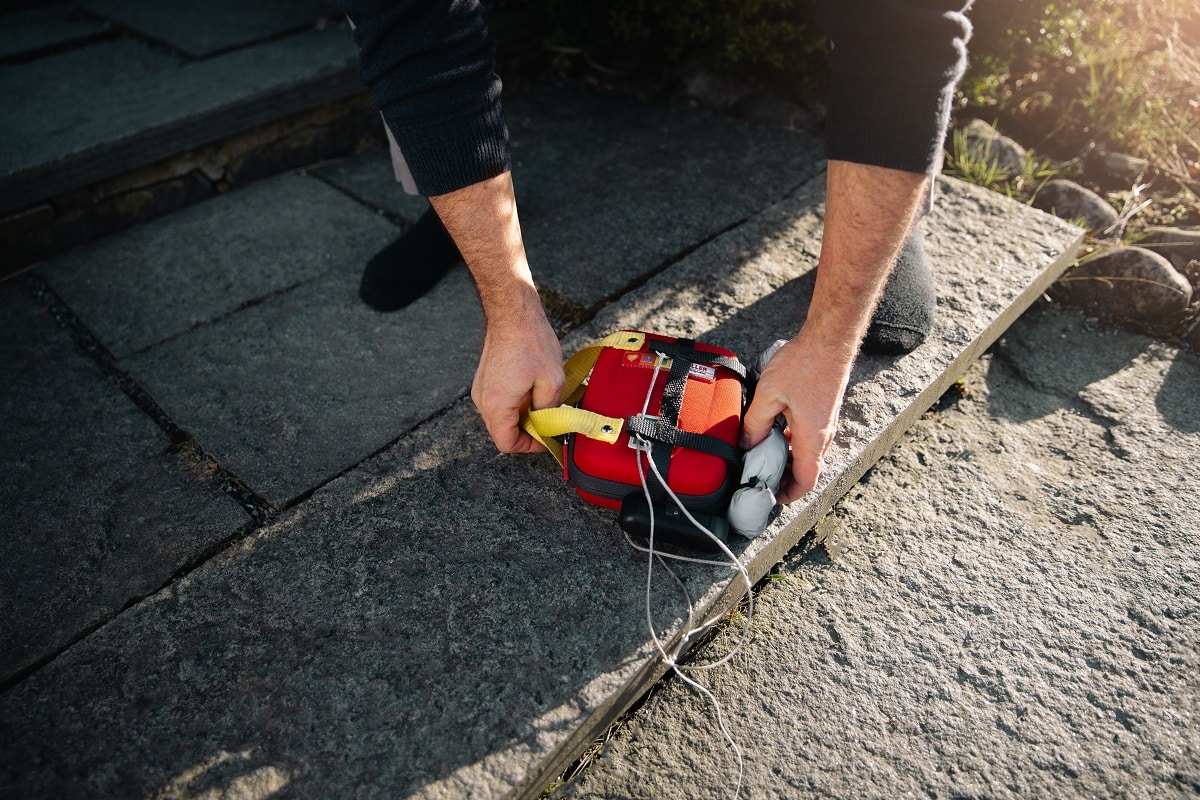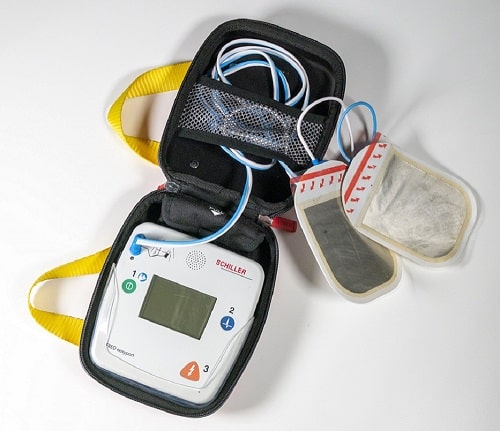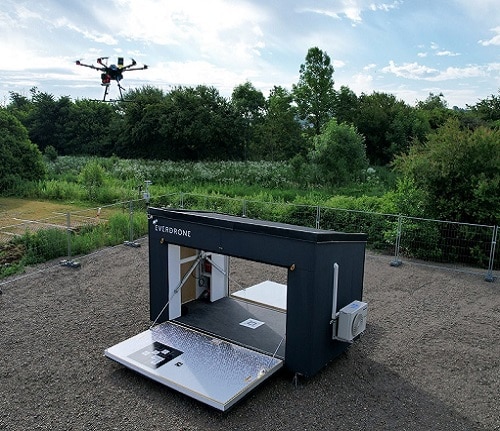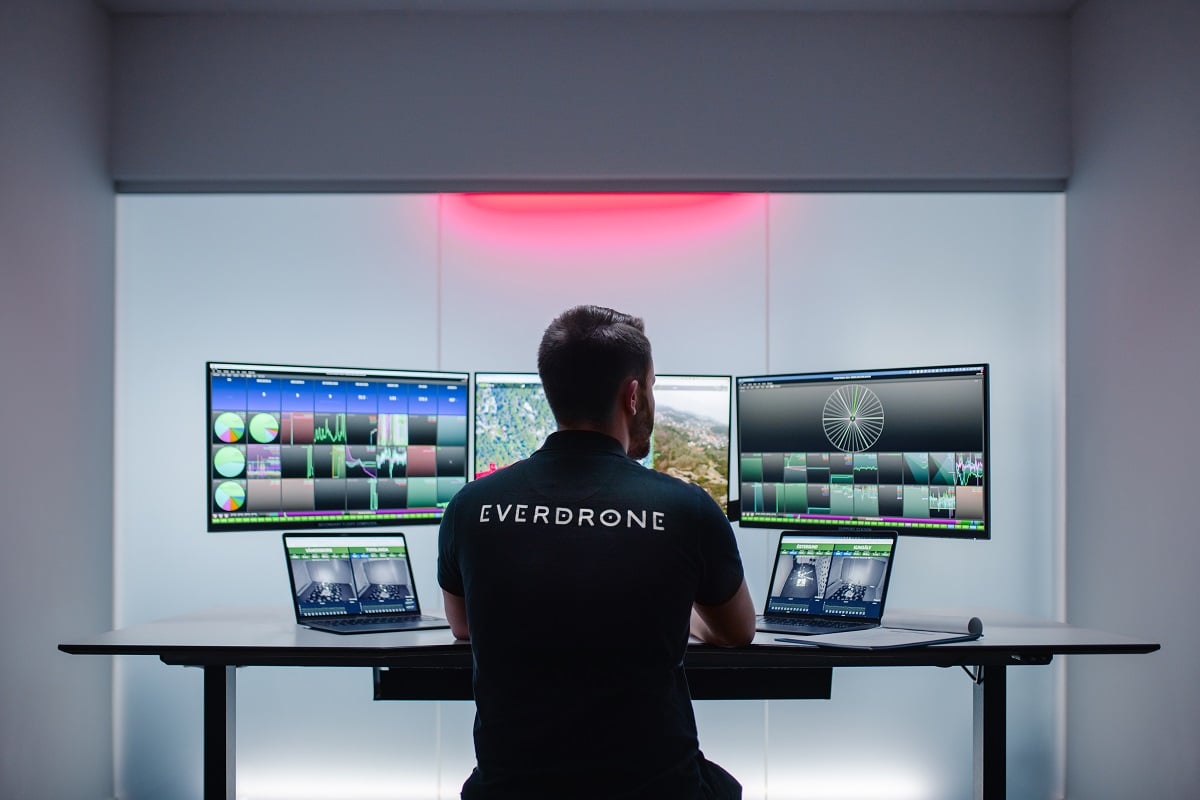Everdrone, a Swedish developer of technology for autonomous drones, has created a service capable of delivering Automated External Defibrillators (AED) in medical emergencies. A man in cardiac arrest was the first case of a patient being saved by EMADE. The story ended up in The New England Journal of Medicine.
Last December in Sweden, a 71-year-old man suffered a cardiac arrest while shoveling snow. A person in cardiac arrest needs help to arrive within 10 minutes to optimize the chances of survival. This is why 90% of victims of cardiac arrest in Europe don’t survive. Fortunately, this Swedish patient was among the lucky 10% and that happened thanks to a drone and a well-informed stranger.
Everdrone’s Emergency Medical Aerial Delivery (EMADE) service is designed to facilitate help as quickly as possible. It enables emergency responders to send a drone equipped with an Automated External Defibrillator to a caller’s home in order to initiate the lifesaving process before an ambulance arrives.
During cardiac arrest, every minute lost without life-saving measures of cardiopulmonary resuscitation (CPR) and a defibrillator causes a potential 10% reduction of the chance of survival. In this particular case, it took three minutes for the service to deliver the defibrillator. The bystander, who happened to be a doctor on his way to work, used the defibrillator on the patient after providing CPR. This man was the first case of a patient being saved by the EMADE.
The cutting-edge system is the fruit of a collaboration between Everdrone, the Center for Resuscitation Science at Karolinska Institutet and the Swedish Emergency Services (SOS Alarm). In a four-month pilot study testing EMADE, the service got 14 eligible cardiac arrest alerts. Drones took off in 12 of those cases and the defibrillators were successfully delivered in 11 cases. In seven of the cases, the defibrillators arrived before the ambulance.
Mats Sällström, Everdrone’s CEO, explained:
“The main technical challenge in the EMADE was to make it physically robust and reliable in the hardware solution (that is, in continued airworthiness) while simultaneously maintaining a cost-effective service from a health economic perspective.
Our main achievement with this system is to offer an end-to-end solution all the way from the drone itself to the software, the integration with the standard care dispatch center and all the flight safety functionalities.”

There are also regulatory challenges involved, related to both air and ground risks. He added:
“We need to produce evidence that the flight system is safe to be able to fly BVLOS (beyond visual line of sight from the pilot) without conflicting with other aircraft and over populated areas.
One key element in the latter case is the safety parachute which will deploy and bring the drone to the ground in a safe manner—should any critical error happen during the flight.”
Beyond Sweden
The EMADE employs military-grade AES-256 encryption in order to avoid any cybersecurity issues.
Presently, the service is operational in Sweden and Denmark and is able to reach a total of 340,000 people. Everdrone intends to expand it to more European countries. The demand is clearly a big one: in Europe about 275,000 patients suffer cardiac arrest annually and, according to Everdrone, approximately 70 percent of those incidents occur in private homes without a defibrillator on site. Sweden alone has around 6,000 cases of cardiac arrest a year.



Andreas Claesson is a paramedic who has been involved in research on behalf of EMADE at the Karolinska Institutet, leading the scientific aspects of the cooperation between the ambulance services, the dispatch centers at SOS Alarm and Everdrone. He believes that the success achieved so far by the EMADE will drive additional research on this solution, both in the technical and medical aspects.
He said:
“We know what is needed to save lives. We know that it is all about a well-functioning emergency chain, early call for help, early initiation of CPR and quick access and use of defibrillators.”
Beyond Defibrillators
Everdrone is also looking beyond defibrillators. The company is presently widening its scope to deliver other time-sensitive medical supplies such as low-weight autoinjectors carrying epinephrine for anaphylactic shock, nasal dispensers with naloxone for opioid overdoses and single-use glucagon for hypoglycemia.
At the same time, Everdrone is expanding its range of services to include live view imagery to support time-critical decision-making in cases of fire or traffic accidents, for example. Mats Sällström said:
“We are currently operating this system in Sweden during a limited trial period. We believe that the combination of emergency medical delivery and live images from accidents is a universal need that will be part of practically every emergency response organization’s toolbox in the future.”










